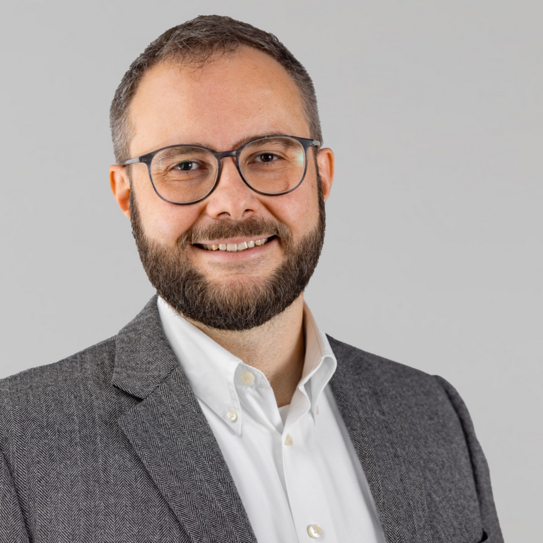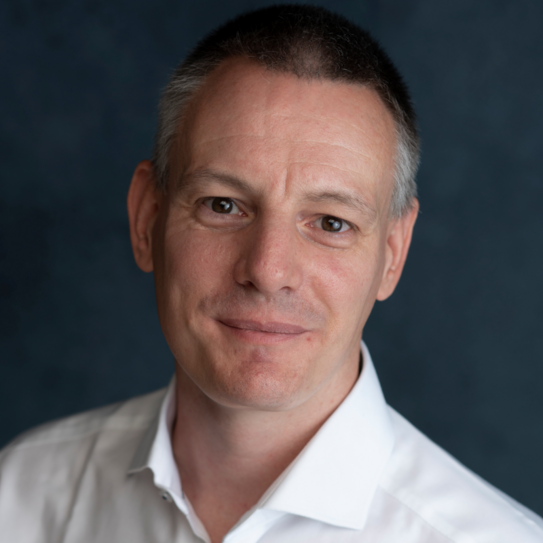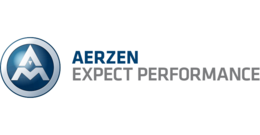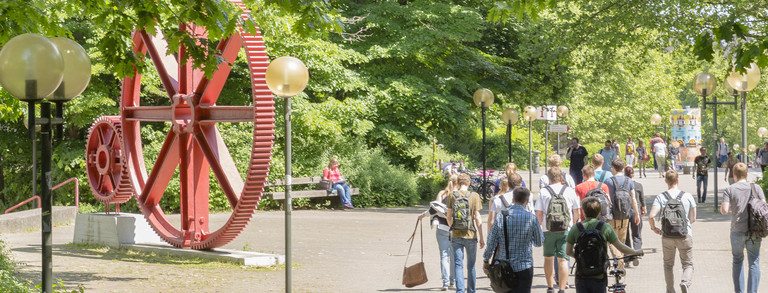Programme
The International Conference on Screw Machines 2024 features presentations on numerous aspects of design, operation, and investigation on all kinds of screw machines. We invite you to join us for the ICSM 2024 and gain the latest insights into:
- design & innovations
- simulation & experiment
- refrigerant oil mixtures
- contact- & loss mechanisms
- heat pumps
- vacuum technology
Connect with researchers, manufacturers, service providers, and users from the global screw machine community. We look forward to welcoming you in Dortmund this September!
- Tuesday, 03 September 2024: laboratory tours & social event (start 6 pm)
- Wednesday, 04 September 2024: key note session - technical presentations - conference dinner
- Thursday, 05 September 2024: technical presentations - science update session
Keynote presentations
Accurate Thermophysical Property Measurements of Refrigerants and their Mixtures with Oil – Is this Important for Practice?
Markus Richter
Chemnitz University of Technology - Department of Mechanical Engineering - Applied Thermodynamics
The efficient design of energy systems for heating and cooling requires reliable technologies, as the global demand is constantly increasing. Accurate knowledge of the thermophysical properties of the involved working fluids, i.e., refrigerants and their mixtures with oil, is essential for optimizing and controlling future energy consumption. Properties such as density, speed of sound, vapor-liquid equilibrium, and viscosity are used to adjust friction losses, sizing, and capacity of the associated apparatus. When designing refrigeration machines, the thermophysical properties of the refrigerants are typically calculated by considering only pure fluids, while the oils lubricating the compressors are often ignored. This can lead to discrepancies between the theoretical and real behaviors of the machines. In our research, we tackle this issue by measuring and modeling oil-refrigerant mixtures. The goal is to advance the understanding of machine components such as rotary positive displacement machines and heat exchangers, thus unlocking unprecedented optimization possibilities.

Markus Richter is a full professor of applied thermodynamics at the Department of Mechanical Engineering of Chemnitz University of Technology and an adjunct full professor at the School of Engineering of the University of Western Australia. His primary research focuses on the accurate measurement and modeling of thermophysical properties of fluid mixtures. In 2016, Markus Richter was appointed Junior Professor at the Institute of Thermo and Fluid Dynamics of Ruhr-University Bochum. He was admitted into the Emmy Noether Program of the German Research Foundation (DFG) one year before. Markus Richter’s research is also part of the DFG research unit ‘Archimedes,’ of which he is the spokesperson. In 2018, Markus Richter was admitted into the “Young College” of the North Rhine-Westphalian Academy of Sciences, Humanities, and the Arts. Since 2024, he has been a member of the Saxon Academy of Sciences and Humanities in Leipzig.
High performance computing of screw machines - State of the art and future possibilities
Matthias Möller
Delft University of Technology - Institute of Applied Mathematics - Numerical Analysis
The computer-aided design of screw machine is a non-trivial task due to the complex physical processes taking place and the machines' complicated shapes. While simplified chamber models allow for the quick (pre-)design and analysis, full-fledged CFD simulations are computationally demanding both in terms of the required computer hardware and the time-to-solution. In fact, despite massive progress of high-performance computing (HPC) hardware and CFD algorithms and software over the last two decades, fully resolved simulations of the fluid dynamical processes at all relevant scales, so-called direct numerical simulation, is out of reach with today's tools.
In this talk, we will give an overview of the state of the art in high-performance CFD analysis of screw machines but also discuss the limitations of traditional approaches. We will then shed some light on less conventional approaches, such as the lattice Boltzmann method and the combination of CFD and AI, and discuss if and how they might be able to overcome the limitations of the traditional tools that are typically based on the Navier-Stokes equations. Next to discussing alternative methodological approaches we will also look into future computing technologies, in particular, quantum and neuromorphic computing that follow different paradigms than today's CPU- and GPU-based HPC systems.

Matthias Möller is Associate Professor of Numerical Analysis at Delft University of Technology, The Netherlands. He holds a PhD degree in Mathematics from TU Dortmund University in 2008 and joined TU Delft in 2013. He is currently leading the quantum-CFD lab which is a joint research initiative between TU Delft and Fujitsu Limited, Japan. Matthias’ research focuses on the development of numerical methods for fluid flow applications both on conventional and emerging compute technologies. His particular interest is in finite element and isogeometric analysis as well as lattice Boltzmann methods. He has (co-)authored more than 70 research articles and book chapters and is member of the advisory council of the DLR Quantum Computing Initiative. Matthias is moreover one of the PIs in the TU Delft QAIMS-lab, which focuses on quantum-enhanced AI solutions for sustainable materials and structural designs in aerospace applications.
Social event with laboratory tour
For the first time this year, the kick-off to the International Conference on Screw Machines 2024 will feature a social event with a laboratory tour.
The pre-event will begin on 3 September 2024 at 6 pm with an official welcome at the laboratory area, Emil-Figge-Straße 71b, 44227 Dortmund. Following this, you will have the opportunity to explore our test rigs at your own pace. Create your own lab tour in dynamic, interest-based groups, moving freely through our facilities.
Our experimental rigs will be showcased through poster presentations, and your questions will be addressed in individual discussions. Enjoy refreshments and cold drinks as you engage in scientific and private networking.
For our preparations, please select the corresponding checkbox for this complimentary event when registering via ConfTool. If you are already registered for the conference and wish to participate, simply update your registration in ConfTool.
Conference dinner
We invite all ICSM attendees to join us for the conference dinner on the evening of 04 September at 6 pm. Enjoy a memorable dinner in the charming setting of the local restaurant Storckshof, just a short stroll from the campus:
Storckshof
Ostenbergstr. 111
44227 Dortmund
Science update
We are excited to announce the continuation of the science update session at the International Conference on Screw Machines. Introduced in 2022, this dynamic and interactive format is designed to foster open discussions and collaborative exchanges among participants. The ICSM science update provides a unique platform for presenting emerging ideas, ongoing research, and student projects that are still in development.
This session emphasises dialogue and engagement. Presenters will share brief overviews of their current work, highlighting innovative concepts and preliminary findings. Following each presentation, ample time will be allocated for questions, feedback, and lively discussions, encouraging a deeper exploration of the topics and the opportunity to gain new insights from diverse perspectives.
We invite researchers, industry professionals, and students to participate in this session, share their ongoing projects, and contribute to the advancement of knowledge in the field of screw machines. Join us for this engaging and informative session, and send us your abstract!
Our Sponsors


